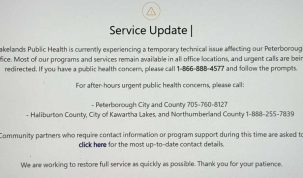Focus on the Fundamentals will Better Prepare Students for Jobs of the Future
The Ontario government released the province’s new elementary math curriculum to better prepare students for work in a rapidly changing world, strengthen math competence and improve grades. The curriculum was developed over two years in consultation with parents, math educators, academics and math education experts, and is designed to reverse a decade of declining math scores. It will be available to students across the province beginning in September 2020.
Details were released today by Premier Doug Ford, Christine Elliott, Deputy Premier and Minister of Health, and Stephen Lecce, Minister of Education.
“I made a promise to parents that we would fix the broken education system we inherited, get back to basics, and teach our children the math fundamentals they need for lifelong success,” said Premier Ford. “Today, our government is delivering on that promise with the first-ever math curriculum in Canada for Grades 1-8 that includes the teaching of coding and financial literacy, both critical skills that will help our students prepare for and succeed in the modern world and in the modern workforce.”
The new math curriculum for Grades 1-8 will:
· Build understanding of the value and use of money through mandatory financial literacy concepts;
· For the first time, teach coding or computer programming skills starting in Grade 1 to improve problem solving and fluency with technology, to prepare students for jobs of the future;
· Use relevant, current, and practical examples so students can connect math to everyday life;
· Put a focus on fundamental math concepts and skills, such as learning and recalling number facts.
“For over a decade, too many students were lacking everyday math, financial literacy, and numeracy skills,” said Minister Lecce. “The new curriculum will help students solve everyday math problems, enshrine financial literacy in the early grades, and better prepare students for the jobs of tomorrow by ensuring every student learns how to code.”
The Ministry of Education is also changing how it makes curriculum available to better reflect how Ontarians consume information. The new math curriculum will be the first uploaded to the new Curriculum and Resources website, a digital space where anyone can access curriculum and learning resources. This platform will help parents, students, and teachers see connections between learning in different grades and subjects.
“Our research team provided an extensive background research report giving the Ministry of Education the most up-to-date research and analysis of other curricula,” said Dr. Christine Suurtamm, Vice Dean Research, and Professor of Mathematics Education, Faculty of Education, University of Ottawa. “Ontario’s new mathematics curriculum builds on what we know about student learning and how students develop an understanding of mathematics. It supports all students to be math learners with opportunities to learn foundational mathematics and engage in current topics. The goal is to support how students use math in the world today, and how they will use math to make informed decisions in the world ahead of them.”
Quick Facts
· The last update to Ontario’s elementary math curriculum was in 2005.
· The new elementary math curriculum is part of the government’s four-year math strategy to ensure that students can build the confidence and skills they need to excel in math.
· The elementary report card will be updated to align with the new curriculum and provide an overall mark in math, along with comments on the different strands of the curriculum to give parents a better overall assessment of how their child is doing.
· Grade 3 and 6 students will not participate in Education Quality and Accountability Office (EQAO) assessments during the 2020-21 school year, as the ministry works to align the assessments with the new curriculum. Students in Grade 9 and Grade 10 will continue to take the mathematics assessment and Ontario Secondary School Literacy Test (OSSLT), respectively.
· The Ontario Government is committed to supporting educators in effectively implementing the new elementary math curriculum. This includes providing classroom-ready resources for each grade, as well as in-depth virtual training for teachers, principals and board staff.
· Educators will also continue to benefit from investments in professional development and math supports, including $10 million for board-based math learning leads, $15 million for school-based math learning facilitators, and $15 million to support release time for educators to become expertly familiar with the curriculum.






















